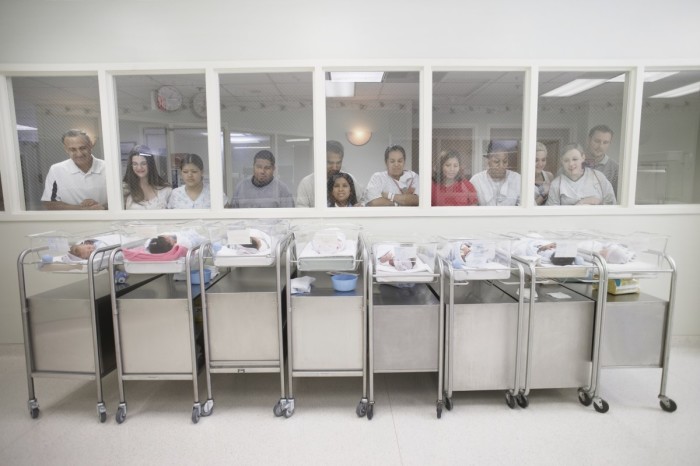Men, conservatives most likely to view US birth rate as too low: survey

A new survey reveals divergent views on the low birth rate in the United States based on one's gender and political ideology.
YouGov released the results of a survey examining Americans’ views on the birth rate based on responses from 3,386 U.S. adults collected on Aug. 5, with a margin of error of 2%.
The Centers for Disease Control found in an April report that 3.59 million babies were born in the U.S. last year, falling short of the replacement level, which is defined as “the level at which a given generation can exactly replace itself.”
When asked what they thought about the number of children being born in the U.S., a plurality (29%) responded that they were “not sure” whether this was good or bad. Twenty-seven percent believed that “about the right number of children are being born,” while 23% contended that “too many children are being born.” The remaining 22% had the opposite belief, saying that “not enough children are being born.”
Broken down by political ideology, 43% of respondents who identified as “very conservative” thought “not enough children are being born,” while just 9% of those who identified as “very liberal” said the same. A large portion of respondents who called themselves “conservative” (37%) reached the same conclusion as did smaller percentages of “moderate” (20%) and “liberal” voters (13%).
On the other hand, 35% of “very liberal” respondents concluded that “too many children are being born” compared to just 15% of “very conservative respondents.” The share of respondents who viewed the birth rate as too high was measured at 16%, 23% and 26% among “conservative,” “moderate” and “liberal” voters, respectively.
Views on the birth rate also differed based on gender. Overall, a higher share of men (30%) agreed that the birth rate in the U.S. was too low than the percentage who took the opposite view (19%). Among women, 26% asserted that the birth rate was too high, while 14% maintained that it was too low.
The gender divide in views about the birth rate extends across every demographic subgroup. The view that people were not having enough children was far more prevalent among male parents and guardians (34%) than their female counterparts (18%). A larger share of males without children (26%) expressed concern about the birth rate than childless women (11%).
While nearly half of conservative (47%) and very conservative men (46%) did not think people in the U.S. were having enough children, a much smaller share of conservative women (25%) and a slightly smaller percentage of very conservative women (39%) reached the same conclusion.
Just 5% of women who described themselves as “very liberal” viewed the low birth rate as a cause for concern along with a larger share of very liberal men (14%). Eight percent of liberal women held this view about the birth rate, as did 20% of liberal men. Slightly more than one-eighth (13%) of moderate women contended that not enough children are being born in the U.S. along with just over one-fourth (26%) of moderate men.
Similarly, the share of women over the age of 65 (17%) who thought the low birth rate was a problem is much smaller than the percentage of men in the same age group with that belief (39%). Eighteen percent of women between the ages of 45 and 64 believed that too few children were being born compared to 31% of men in the same age group.
Similar gaps existed between the percentages of men (24%) and women (12%) between the ages of 30 and 44 as well as the shares of men (26%) and women (8%) between the ages of 18 and 29 who were concerned about the birth rate.
The survey also asked respondents how important their concerns about the birth rate were overall. A plurality (37%) of those surveyed told pollsters they thought the number of children being born in the U.S. was “somewhat important” followed by 34% who characterized it as “very important,” 14% who considered themselves “not sure” how important it was, 11% who thought the birth rate was “not very important” and 5% who described it as “not at all important.”
Among conservative respondents, a majority of those surveyed (59%) characterized the birth rate as “very important.” A plurality (42%) of Americans who identify as conservative classified the birth rate as “very important” while pluralities of liberals (47%), moderates (40%) and very liberal respondents (32%) considered it “somewhat important.”
Ryan Foley is a reporter for The Christian Post. He can be reached at: [email protected]




























